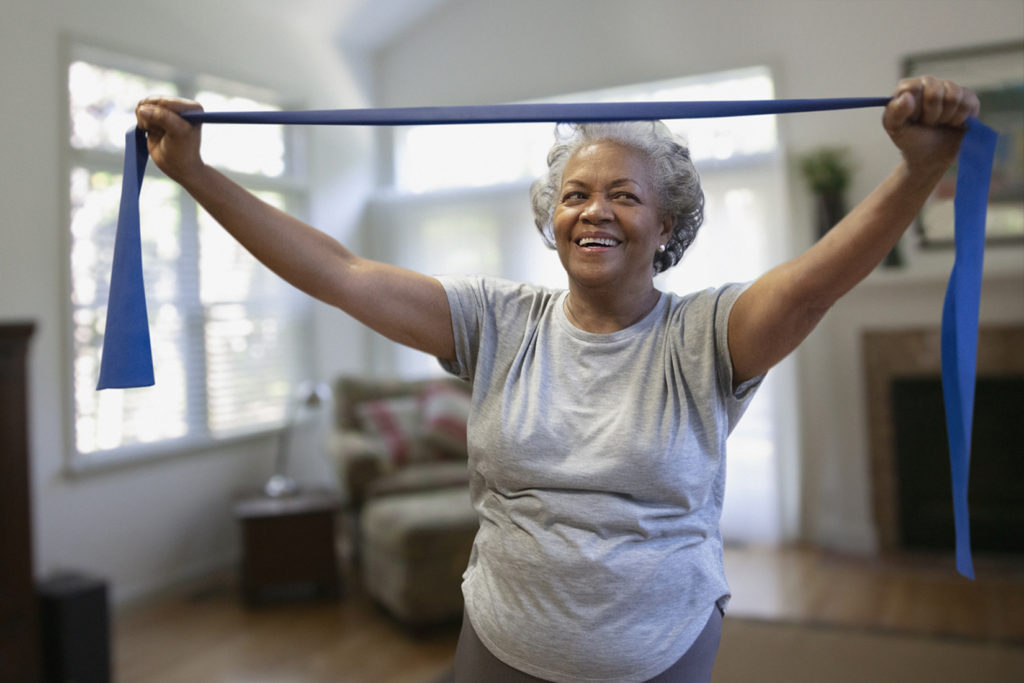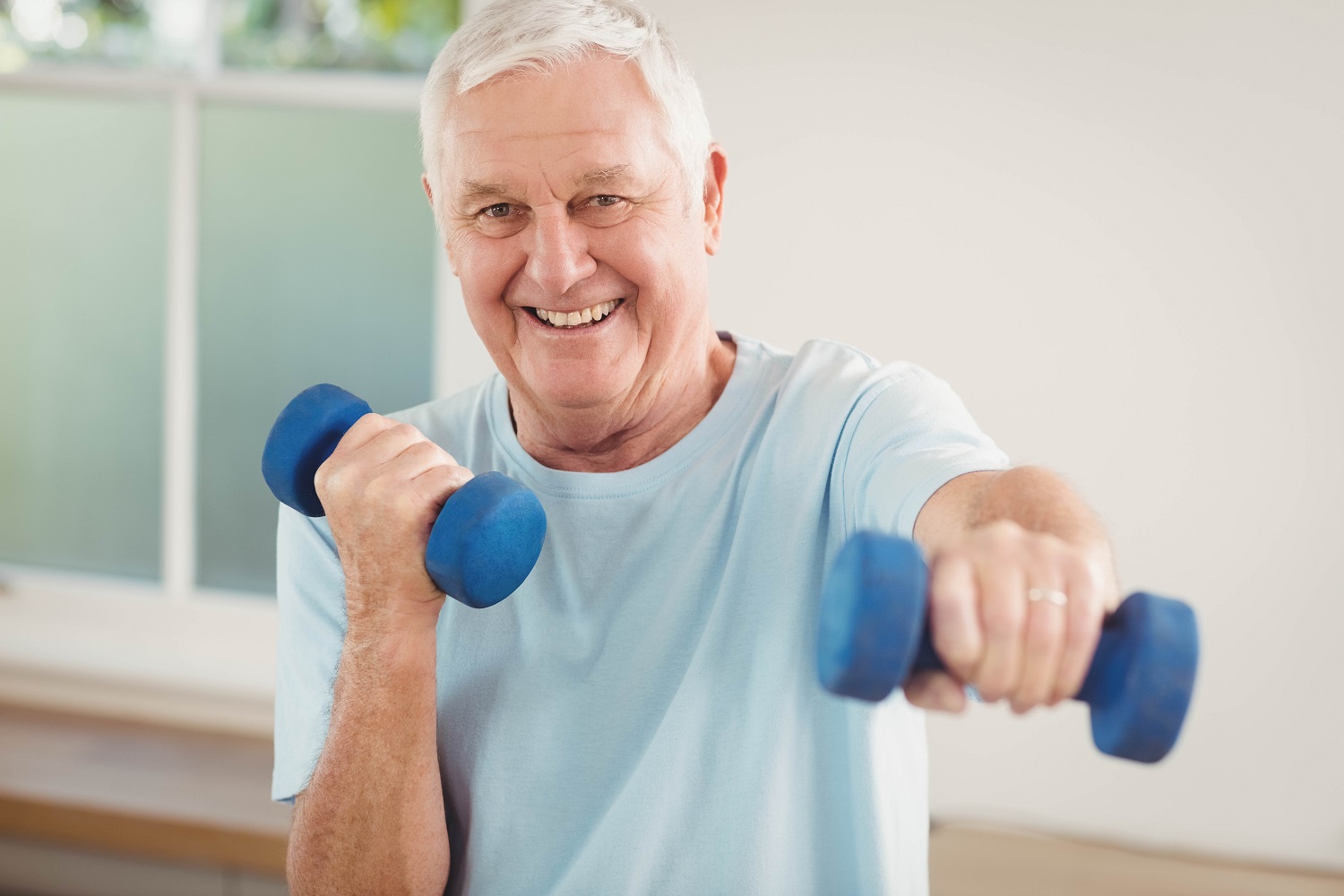How to Encourage Elderly to Exercise
Convincing a senior citizen to exercise is not an easy task. After all, seniors are tired, have spent decades exercising in the past and just want to relax after a life of hard work. The challenge lies in convincing the elderly person in your life to get up and moving.
Begin from a friendly place in which you express your love and hope for him or her to enjoy improved health. It will also help if you provide the “why” of the need to exercise, meaning the reasoning behind exercising. Provide your loved one with a mat, weights, exercise bands and other tools necessary to exercise, offer some guidance in terms of how to use those items with the optimal technique and help him or her set reachable goals.
Health Benefits of Exercise for Elderly
The average senior citizen is hesitant to exercise for good reason. A life of hard work has culminated in a body with ailments and pain. However, arthritis, general soreness and fatigue are not reason enough to completely abstain from exercise. Instead of sitting around engaging in conversation and playing the occasional board game in between TV sessions, get moving with the senior in your life. Encourage your parent, grandparent or other relative to exercise and he or she will benefit in several ways. Frequent exercise helps to thwart chronic disease, boost mood and decrease the potential for injury. The body takes time to repair itself after activity and there will be some soreness yet the benefits of exercising far outweigh the drawbacks.
Motivate the senior you love to exercise and he or she will feel invigorated, renewed, youthful and healthier. Add in the fact that light body exercise also reduces the chances of chronic illness, high blood pressure, obesity, constipation, diabetes, dementia and heart disease and there is even more reason for seniors to get moving.
Just be sure to encourage your loved one to sweat the small stuff of the right light body exercise posture for seniors to prevent injuries while staying fit. Furthermore, even something as small as hand exercise equipment for elderly will help. Examples of hand exercise equipment for elderly include Chinese Baoding balls and grip strengtheners. The takeaway is there is no need for a full body workout for elderly every single day as there is a heightened chance of injury simply due to old age.
What is the Best Exercise for the Elderly?
There is no single best exercise for the elderly. However, walking and swimming will certainly prove beneficial. As long as your parent or other senior in your life is comfortable and safe in the water, encourage him or her to swim, even if it is in place in the shallow end for only a couple minutes. If your loved one is capable of water aerobics, opt for that as it occurs in a group class setting, meaning there will be an instructor available to guide the class through the exercises. Additional examples of the best exercises for the elderly include dumbbell strength training, walking, resistance bands workouts, Pilates and body weights.
Home Exercises for the Elderly
The vast majority of exercises performed by the elderly can be done at home alone or with the assistance of a home health aide. As noted above, water aerobics can be performed in a home pool. Resistance bands can be used with ease in a large room in the house. Walking in place, crunches, stretching and even light jogging in place can also be performed in the house. So don’t assume there is a need for a personal trainer for elderly just to get some exercise.

Why We Encourage Walking Exercise for the Elderly?
Walking is revered as one of the top exercises for the elderly as it helps to maintain a steady body weight, can be done in the home and is low-impact. Walking reduces the risk of heart disease, diabetes, colon cancer and stroke. Walking enhances bone strength, helps to ward off osteoarthritis and even osteoporosis. In some cases, walking can even decrease blood pressure in individuals saddled by hypertension.
Circuit Training for Elderly
Seniors can walk greater distances after participating in circuit training. Circuit training for elderly can even boost balance and walk times. Some seniors even go as far as crediting circuit training for elderly exercise program for frail elderly as the reason why they have yet to suffer a fall.
How Often Should Elderly Exercise?
Adults age 65 on up are encouraged to exercise at least two and a half hours per week. Ideally, seniors will exercise for 20 minutes per day even if that activity is merely a brief walk around the block. Keep in mind, doing chores around the house, light running, swimming, hiking and even jogging in place inside the home all qualify as forms of exercise.
Exercise Equipment for Seniors
Senior citizens need the right exercise equipment to get the most out of a workout. Examples of exercise gear for seniors includes:
· Rowing machines
· Wrist weights
· Stability balls
· Yoga mat
· Ellipticals
· Lat pull down machines
However, if the senior in your life is fragile, has weakened bones or other significant health challenges, it is best to stick to the basics of a yoga mat and light weights.
Elderly Exercise Classes
Exercise classes are available strictly for the elderly. Water aerobics classes, elliptical classes, stationary bike riding classes and all sorts of other group-oriented activities are available for elderly individuals. Some such classes even incorporate body weights to help the senior in your life build and maintain muscle mass in addition to elevating his or her heart rate.
Activity Schedule for Elderly
The activities your loved one engages in during the day play a large part in shaping his or her happiness (or lack thereof). Elderly individuals should adhere to a schedule of daily activities, much of which will be performed in a group setting. From gardening to exercising, socializing with fellow seniors and beyond, each day should consist of several unique activities. Examples of additional activities for the elderly include arts and crafts, sing-a-longs, board games and puzzles.


